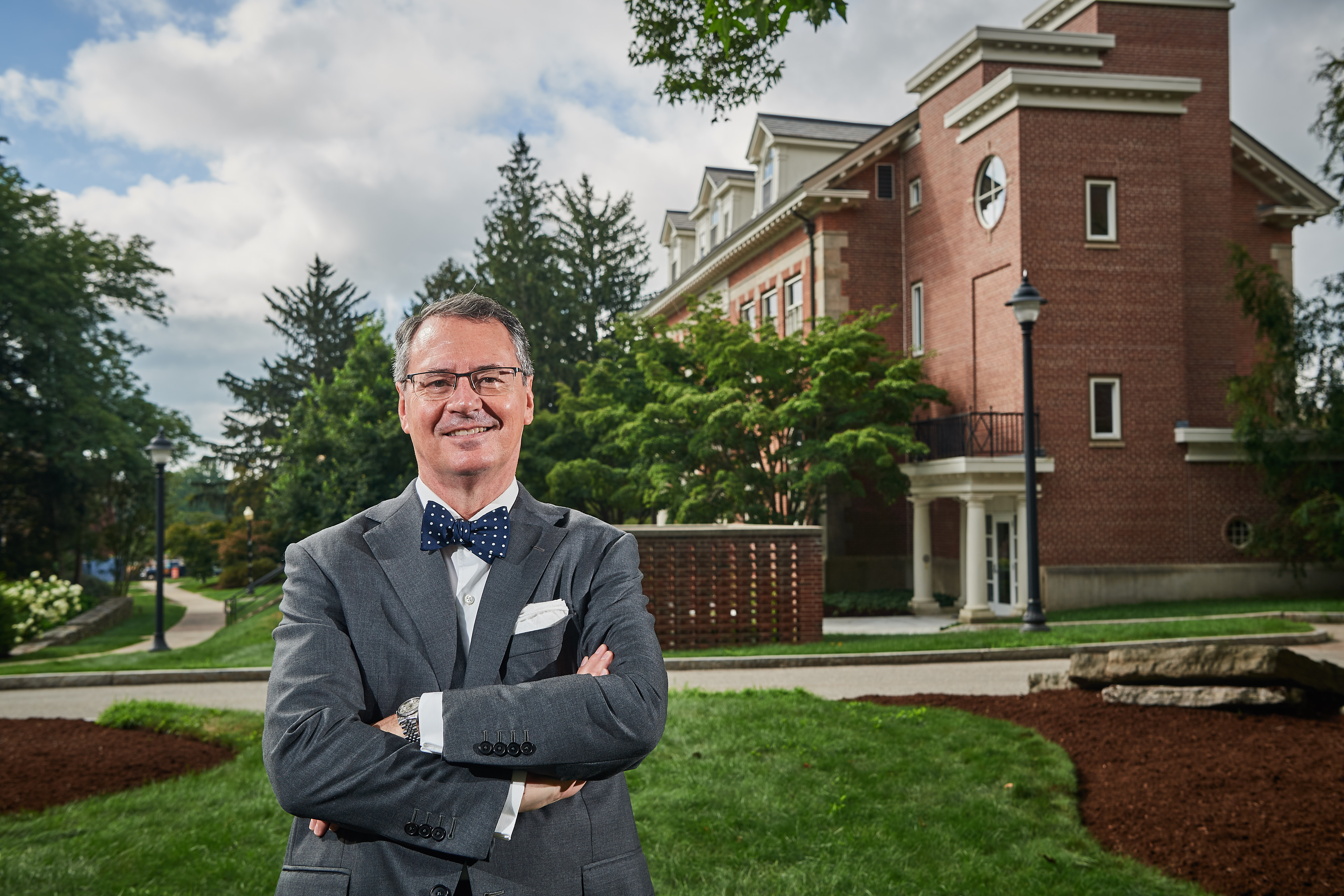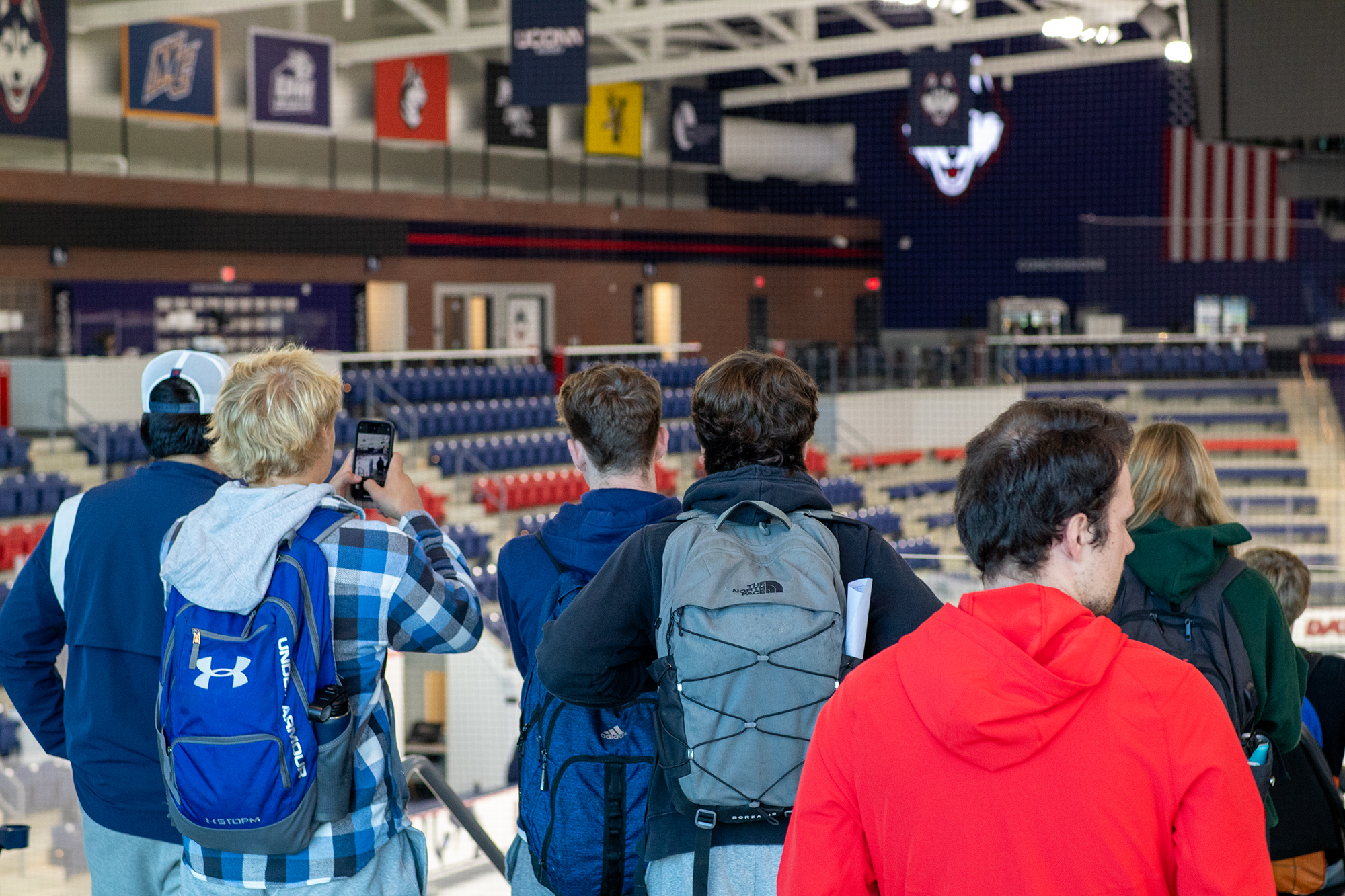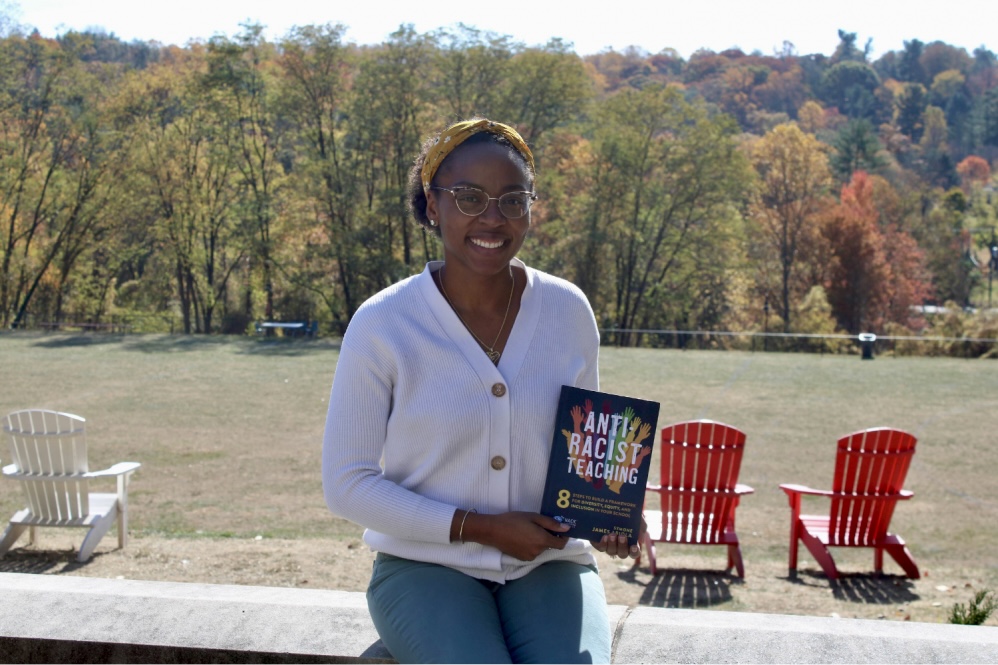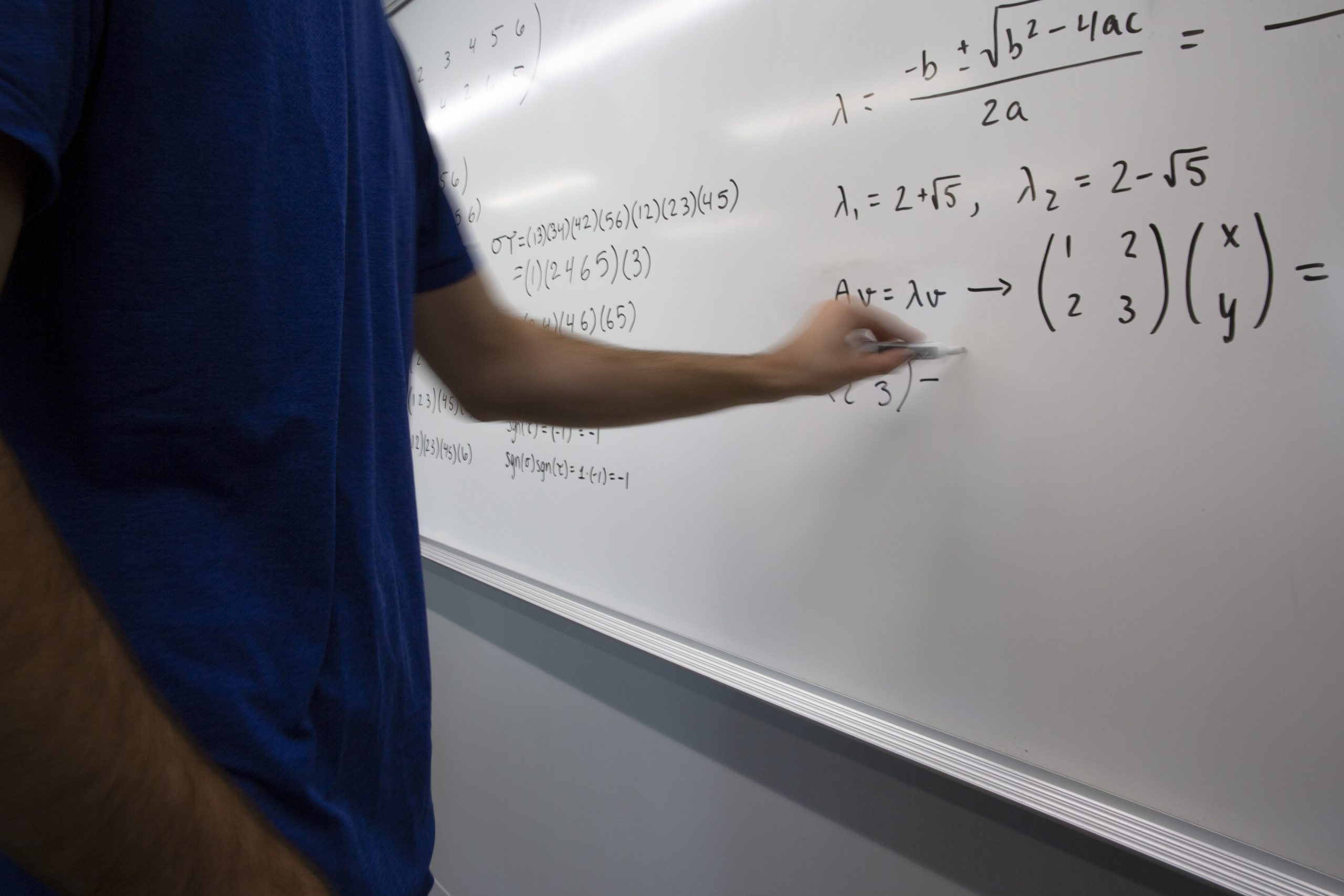Although he’s not an incoming freshman, UConn Provost Craig H. Kennedy will be sharing many first-time experiences with them this week, as he starts his first full academic year in his post.
Kennedy joined UConn in April as its new provost and executive vice president for academic affairs, coming to Storrs from the University of Georgia, where he was dean of the College of Education.
Kennedy immersed himself immediately in the task of getting to know people throughout UConn, welcoming their questions and soliciting their ideas. He says it solidified what he already believed when he joined UConn: that the University is at a pivotal time in its history, with a range of opportunities available to help cultivate success in its faculty, students, and the state as a whole.
The provost is the University’s top academic officer, directing the schools and colleges throughout the UConn system and working with others on his team to guide student learning, faculty hiring and development, and the University’s overall academic mission.
Among his many duties this week, Kennedy welcomes new faculty Thursday to their daylong orientation; joins Student Affairs officials to greet new students’ families Friday; dines with UConn tour guides to thank them for their work; and many other events, as he becomes an increasingly familiar face on campus.
Kennedy hails from southern California, earning his BA in psychology from the University of California at Santa Barbara and his MS in special education from the University of Oregon. He returned to UC-Santa Barbara to earn his Ph.D. in education.
Kennedy’s scholarship focuses on autism and neurodevelopmental disabilities, and he was an early scholar in a once-limited area that is now booming with research in psychology, neuroscience, and other related disciplines. His work has resulted in more than 150 scholarly articles, and has been supported by $16 million in extramural funding for research, teaching, and outreach.
He began his career on the faculties of the University of Hawaii and the Medical College of Pennsylvania, then joined Vanderbilt University in 1997 to teach and conduct research in its renowned programs in education and neuroscience.
He spent 15 years at Vanderbilt as a faculty member in the Peabody College of Education and Human Development, and later as a department chair, associate dean for research, and finally as senior associate dean of the college. He also was a professor of pediatrics in the Vanderbilt University Medical Center.
Before coming to UConn, Kennedy was dean of the College of Education at the University of Georgia, which has 4,200 undergraduate and graduate students, 220 full-time faculty, and nine departments. Under his leadership, the college advanced nine places in national rankings and seven of its programs joined the ranks of the top 10.
“The translation of ideas from a private university like Vanderbilt to a public university like Georgia was very natural, and worked very well,” Kennedy said. “Knowing that you have to respect the mission of a public land grand university and its direct need to positively impact people in the state, I’m glad for the chance to bring those experiences from Vanderbilt and Georgia to UConn and to help it grow as an institution.”
Kennedy sat down recently with UConn Today’s Stephanie Reitz to discuss his outlook on UConn and academia as a whole, and to answer some of the questions that may be on people’s minds.
Q. What attracted you to UConn?
A. UConn is at a pivotal time in its history. It’s made really substantial steps forward and has been moving up in national status, and has the reputation of being a university on the rise. That initially captured my attention. When I started to get to know UConn, I also realized the incredible array of opportunities there are here. I’m honored to help the University move forward as a member of its leadership team, and to work with the president to help UConn continue on in that amazing trajectory.
UConn has done great things in terms of the student experience; our undergraduate student experience is simply exceptional, and as good as what you would find at most elite private universities. It’s an example of the fact that when UConn wants to do something, it can achieve great levels of excellence.
We also have great things we are doing in research. There’s no doubt that we’re at a moment in our history when research can become a particularly prominent part of our mission, as our activities engage the talents of our faculty and students alike.
Q. What challenges do you see facing UConn?
A. We are at a period where we realize that state financial support is not what it used to be and that’s probably not going to change. Instead of being reliant on state support, we have to become more self-determined, and really look at how we as faculty, staff, and students can bring in resources that help all areas achieve and become more financially sustainable.
I look at the examples of other public universities that are considering the broadest range of revenue streams possible. Look at it in the sense of the rising tide that raises all boats: If everyone contributes in the way they do best, we all prosper as a group.
Those additional resources for UConn could be in the form of research funds, contracts, grants, entrepreneurship, tech transfer, commercialization of ideas and products we develop, and licensing of those ideas and products. It can also be in offering a wide range of needed graduate degree programs and certificates in areas that are in high demand in Connecticut, nationally, and globally.
There are also opportunities in terms of making the undergraduate experience more enriching for those who seek programs allowing them to get bachelor’s and master’s degrees combined. We have some examples in terms of programs here that are successfully doing that, and certainly there are really great role models in terms of public universities that have done that. I have no doubt we’ll be as successful as they are.
All of our work is a partnership with the talented faculty we have here. We know they have valuable ideas and insights, and I want them to know that they have an avenue to be heard.
Q. How can UConn ensure that it cultivates excellence in all disciplines, balancing the sciences with the humanities?
A. One of the things that strikes me about UConn and makes it somewhat unique as a university is that it’s not strong in simply one area. It has multiple disciplines for which it’s nationally known. For instance, it’s very well known globally for its human rights institute, its humanities institute, its School of Fine Arts, its great work in natural sciences, engineering, medicine, and social sciences, and so many more areas.
If you add to that all of our professional schools and programs, many of which are nationally renowned, we have a really robust academic portfolio as a university. We have a truly impressive portfolio of scholars and activities across the disciplines, and will continue to support and build on that.
Q. How have you settled in so far?
A. Very well. I feel very at home and very welcomed, both personally and professionally.
I’m living in Hartford, which locates me centrally in the state in a way that allows me to be accessible to the regional campuses and also to work closely with the schools of law, medicine and dental medicine, and social work.
One of the things we’ll be looking at is how to expand and enrich our regional campuses, because they have tremendous potential. Each of the campuses has its own unique personality and strengths, and as we look at each location and how they can develop and mature as a campus, we will be tapping into those strengths.
Q. Inquiring minds want to know: Have you always been a bow tie guy? You’re bringing some nice sartorial splendor to Storrs.
A. I wore ties as an undergraduate because I felt it showed respect to the professors whose classes I was taking. I guess I am a little old school. At the same time, I was working with people with (profound) autism who could be highly aggressive, and I learned very quickly that you can be grabbed by the tie and pulled across the table. I looked to a couple of my academic heroes, both of whom turned out to be from Boston, and they wore bow ties. I’ve been wearing them ever since.
Q. Do you have any favorite spots on campus yet? Have you settled on a favorite ice cream at the Dairy Bar?
A. The flavors I’ve tried have all been good, and the Avery Point Coastal Crunch was certainly delicious.
I learned my directions on campus based on where locations were in relation to Fairfield Way, so that was quickly a guidepost for me and a favorite location. Of course, I’m very careful never to step on the UConn seal in front of the library – that’s one of the first things I heard when I arrived!



